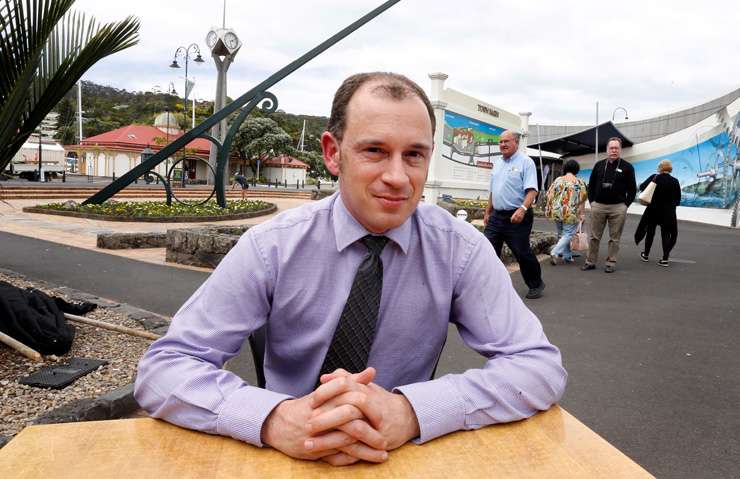Homeowners pinning their hopes on a bounce back in house prices may have to wait some time.
Economists and commentators are not convinced that house prices have hit bottom yet, and have warned Kiwis not to expect a V-shaped bounce back when conditions do start to improve.
Infometrics chief forecaster Gareth Kiernan told OneRoof that prices are unlikely to “plateau” until the middle of next year. Late last year, he was predicting house prices would fall 12% from their peak but now he believes the fall could reach beyond 15%.
“If you look at REINZ’s index for Auckland and Wellington, it’s down about 12% from where it was on about November last year, which is more than I would have expected. The property market grew more through 2020 and 2021 than anyone anticipated, which leaves more room to fall,” he says.
Start your property search
Kelvin Davidson, chief economist at CoreLogic, also suspects the housing market is still in a downturn phase and expects more downward pressure on Auckland and Wellington house prices. “I’m not saying crashes. Auckland and Wellington climbed really fast in the upswing and are now falling faster in the downswing,” he says.
A rapidly changing market
Recent figures from REINZ would blunt any expectations of a revival any time soon. The median number of days to sell a residential property in New Zealand has risen from a low of 29 days in November 2021 to 44 last month, while the number of sales has dropped from 8381 to 4721 over the same period.
CoreLogic’s most recent home affordability report showed that in Q4 2021 the house price to income ratio for Auckland was 10.1 and Wellington 8.3. The other main centres were Hamilton 8.6, Tauranga 11.9, Christchurch 6.9, Dunedin 9.1. As those multiples drop, buyers should, in theory, be able to find more properties within their reach, although other factors such as rising interest rates and rising inflation will have an impact.
Kiernan doesn’t expect the price to income ratio to grow higher, but adds: “Even if you are getting some sort of sizeable drop at the moment, you’re still going to have housing that is more expensive now than it was in 2018 or 2019.”
Will house prices bounce back?
Even when the recovery comes, few commentators expect a V-shaped upturn. Davidson says he would use the term “bathtub” in preference to “bounce back”, drawing parallels to price movements post-GFC peak.
“It was a downturn and then it was a long, long flat pitch and then the recovery started. We use the bathtub metaphor for that shape.” The current market, though, is facing different challenges to those faced post-GFC. “We had interest rates falling in the aftermath of GFC. Now we’ve got them going the other way around.”
But it’s not always hard economic factors that prove the catalyst for a turnaround. Davidson says people's mindsets play a role in the housing market, and something as simple as mortgage rates starting to drop next year could trigger a turnaround.
First to recover?
After the question of when prices will pick up, the next question is where.
One factor that could favour Auckland ahead of Wellington is if migration picks up, says Davidson, with migrants tending to favour Auckland over other parts of the country. “So lots of variables here.”
James Wilson, head of valuations at OneRoof’s data partner, Valocity, says homeowners shouldn’t expect recoveries to be the same across the board, even within cities. “When it does happen, it’s going to be at a submarket level,” says Wilson.
Traditionally, upturns start from the centre out, says Nicki Cruickshank, sales director at Tommy’s Real Estate in Wellington. She says buyers tend to turn to more desirable inner suburbs when prices become more affordable. Then the outer suburbs that are less desirable follow as the central ones climb again.

Infometrics chief forecaster Gareth Kiernan believes outer suburbs will be the first to recover. Photo / John Stone
That’s exactly what has happened on the ground after previous downturns in Wellington, says Cruickshank. As prices start to drop and the desirable central suburbs become more affordable, buyers return there first.
Bayleys Remuera agent David Rainbow, who has been selling property in Auckland since the 1980s, says that in the past Herne Bay has fallen first followed by Remuera. When the two upmarket suburbs become more affordable, the rise starts again and like Wellington radiates out. This time around, however, he thinks the outer suburbs favoured by first-home buyers and investors might start to go up soon. He is hopeful that the traditional upturn in spring will happen this year.
Kiernan also favours the outer suburbs picking up first because the inner suburbs of Auckland in particular have become so expensive this time around.
Wilson concurs. He expects that Auckland’s traditional first-home buyer/investor suburbs will be the first to recover, although he doesn’t expect rises any time soon.
“However, in both Wellington and Auckland, you might see property types such as central city apartments and investor properties to stay softer for a lot longer.
“Overall a downturn in confidence obviously really hits everyone. But it hits people like investors far more so.”

















































































